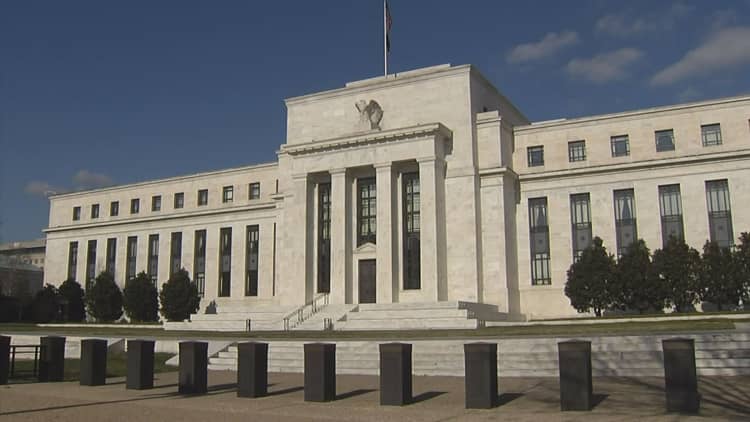
Employers added a solid 209,000 jobs in July, but sluggish wage growth contributed to lingering doubts that a lack of inflation could slow the Fed's efforts to raise interest rates.
Average hourly wages rose 0.3 percent, as expected, but the 2.5 percent annual gain remains below the 2.9 percent high reached last December, and it comes after several months of slowing in a variety of inflation measures. The number of jobs added was above the 183,000 expected and puts job growth back above 200,000 for a second month.
The Federal Reserve is widely expected to begin unwinding its $4.5 trillion balance sheet in September, a move that would start with the Fed reducing its purchases of Treasury and mortgage-backed securities by $10 billion a month. The central bank is then expected by many economists to raise interest rates by another quarter point in December.
Following the strong jobs report Friday, stock futures briefly added to gains, and Treasury yields move higher. Fed funds futures reflected odds of 45 percent for a December rate hike, up from 41 percent Thursday, according to John Briggs, head of strategy at NatWest Markets.
"Nobody is doubting the balance sheet unwinding in September. It's between now and December, it's going to be hard to move those odds" for an interest rate hike, he said.
Briggs said the jobs report, while strong, does not change market perception at all. "There continue to be concerns about inflation," he said.
Fed Chair Janet Yellen steered the market focus to inflation when she testified before Congress that the central bank was concerned about the slowdown after inflation had started to pick up. That was a departure from previous Fed comments that the lower pace was transitory. The Fed's target is for 2 percent inflation, and its preferred measure of inflation is at about 1.5 percent.
Next up for markets will be a key reading on consumer inflation in the consumer price index next Friday.
"There's a lot to like in the [jobs] report. The top-line number is very strong. Private sector jobs are very strong. There were no meaningful job losses. The mystery continues to be with the labor market that we don't see any wage acceleration," said Michael Arone, chief investment strategist at State Street Global Advisors.
Arone said he expects Fed officials to move ahead with their plan to raise interest rates this year. Strong job growth is expected to lead to higher wages, as employers compete for workers, but even though there are some labor shortages, wage gains have stayed low.
"They're stumped. I think they will continue on a path of monetary tightening because they will expect wages will accelerate," Arone said of Yellen and fellow labor economist Fed Vice Chair Stanley Fischer.
"I expect them to do more on the balance sheet in September and move on rates later in the year," he said. "I think what they're holding onto is this inflation conundrum is temporary."
Arone said the market's doubts about the Fed stem from concerns that it moves forward with rate hikes but the economy might not be strong enough to withstand it.
"That's the crux of the challenge. Certainly financial market conditions are just fine and the labor market is demonstrating strength and full employment. It does seem inflation remains the key to the whole thing," he said.
Jack Ablin, CIO of BMO Private Bank, is one of many market pros who doubts the Fed will move in December.
"The wage number at 2.5 percent is respectable. It just fits into the slow and steady. I still think we're mired at 2 percent growth. That's really going to keep the Fed guarded," he said.
Ablin doesn't yet see anything to force the Fed's hand for another rate hike. He does expect the balance sheet reduction in September, and that could put some upward pressure on real interest rates.
"What it does is it helps potentially steepen the yield curve, and that creates a favorable net interest environment for banks," he said. As for the potential for a December hike, "I think they could take it off the table entirely especially if they see the bank stocks rally in response to their balance sheet reduction."
Ablin said the market — and the Fed — needs much more inflation data.
"This [jobs report] does not give the federal reserve a clue one way or the other. It fits exactly into the trend. It's good I think the market will like it, but this offered no new information for the fed.," he said.
WATCH: Jobs report shows solid growth in labor force participation: Austan Goolsbee



